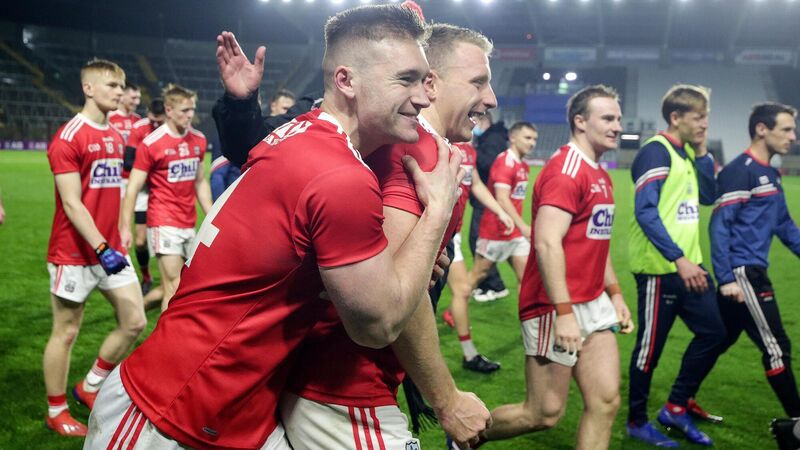Kieran Shannon: Everything about Cork radiated defiance and belief

Cork's Kevin Flahive celebrates with Brian Hurley after the Munster SFC semi-final win over Kerry at Páirc Uí Chaoimh on Sunday. Picture: InphoI/Laszlo Geczo
Try from €1.50 / week
SUBSCRIBE
Cork's Kevin Flahive celebrates with Brian Hurley after the Munster SFC semi-final win over Kerry at Páirc Uí Chaoimh on Sunday. Picture: InphoI/Laszlo Geczo
Although it was 1983 and Tadhgie Murphy that Mark Keane’s goal had us all instantly referencing and reaching for, such was the nature and significance of this shock that it wasn’t the only moment from either Cork’s or Kerry’s past that was stirred up.
Seamus Darby was mentioned on Twitter more than once minutes either side of Keane’s incredible intervention. Queries whether Kerry had ever before been beaten by a team operating outside of the top 16 in the national league prompted mention of Martin Daly’s goal in 1992 that itself triggered the entire cattle population of a county to go unmilked for a week while the sudden death nature of Keane’s strike — not even time for the resultant kickout to be contested — also had echoes of Daly’s strike against Cork themselves in Ennis in ’97.
Already a subscriber? Sign in
You have reached your article limit.
Annual €130 €80
Best value
Monthly €12€6 / month
Introductory offers for new customers. Annual billed once for first year. Renews at €130. Monthly initial discount (first 3 months) billed monthly, then €12 a month. Ts&Cs apply.
Newsletter
Latest news from the world of sport, along with the best in opinion from our outstanding team of sports writers. and reporters
Newsletter
Latest news from the world of sport, along with the best in opinion from our outstanding team of sports writers. and reporters
Thursday, February 12, 2026 - 10:00 PM
Thursday, February 12, 2026 - 6:00 PM
Thursday, February 12, 2026 - 5:00 PM
© Examiner Echo Group Limited